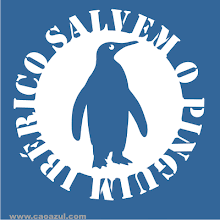"I believe humans have a universal "intuitive biology" that informs our intuitions and theories about life. These intuitions evolved to have a certain form because they were useful in that form to our hunter-gatherer hominid ancestors. These intuitions are probably not coherent, consistent or infallible, nor are they necessarily easy to generalize to systems that we did not evolve to deal with. Much of the confusion over ALife results from trying to apply intuitive biology theories to domains with which humans have very limited evolutionary experience. We have deep intuitive conceptions of intentionality, animacy, agency, motivation, and cognition, which apply very well (i.e., very usefully) to animals and people but very uneasily to plants, mechanical devices, robots, computers, and artificial systems."
Do já aqui citado e comentado Silicon Second Nature
(extracto de entrevista; bold meu).
Pergunto-me quanta cultura participará nisto.
(extracto de entrevista; bold meu).
Pergunto-me quanta cultura participará nisto.


A partir desta intuição, uma solução megalómana:
ResponderEliminarPrecisamos de cruzar um estudo extensive, ou intergeracional, com um cross-cultural. Alguém para fazer o primeiro? Eu quero o segundo, aqui, nas Trobriand e no Japão.
Pegue-se pelas práticas associadas, direito e discursos bio/tecnoéticos, procurando o 'enquadramento cosmológico' (sim, mesmo à antropologia americana clássica). Arranje-se uma situação densa para chegar a isto (Escola de Manchester). Quero compreender semelhanças e diferenças nestas atitudes - a sua especificidade cultural -, bem como transformações; quem sabe ser surpreendida por grandes implicações quotidianas, para as quais só a etnografia tem sensibilidade. Temos aqui pesquisa para uma vida.